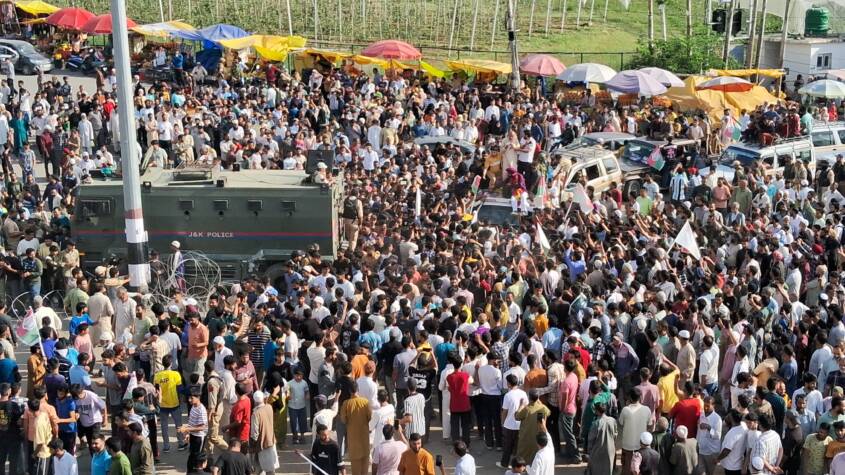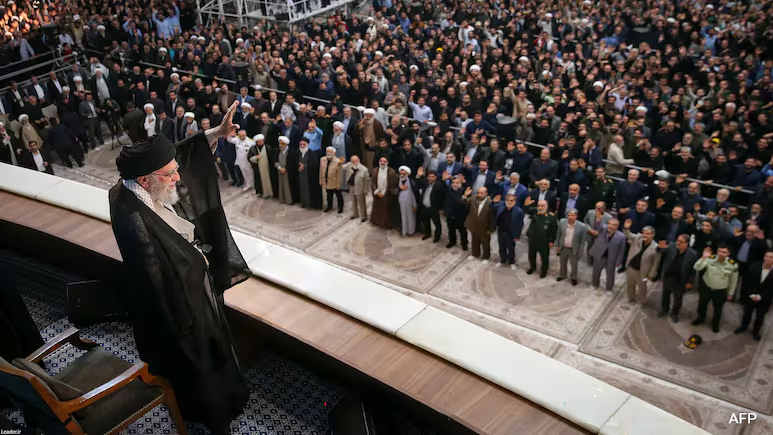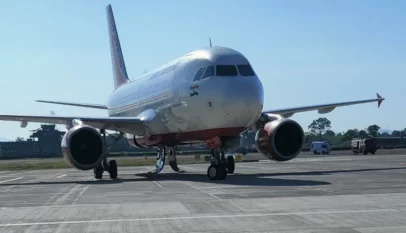High-octane campaigning ends for second phase of Assembly polls in J-K
Elaborate arrangements put in place for smooth & hassle-free voting: CEO Pandurang K Pole
Over 25.78 lakh voters to decide fate of 239 candidates in Second Phase
Highest 16 candidates in fray in Habbakadal AC, Budhal AC sees tight race with just 4
3,502 Polling Stations established with webcasting for fair, transparent voting process
Srinagar: Ruling and opposition bigwigs led by Prime Minister Narendra Modi and Congress leader Rahul Gandhi locked horns on the political stage as campaigning for the second phase of the Jammu and Kashmir polls ended on Monday evening.The blazing campaign saw emotional appeals to people and uncouth remarks about rivals, as the leaders tried to woo voters of 26 assembly constituencies spread across six districts of the union territory, including the summer capital Srinagar.Over 25.78 lakh voters will decide the fate of 239 candidates in second phase of General Elections to the Legislative Assembly, scheduled on 25th September, 2024.
The second phase of the Legislative Assembly Elections 2024 will cover 26 Assembly Constituencies (ACs) across six districts of Jammu & Kashmir, include Ganderbal, Srinagar and Budgam in Kashmir Division, Reasi, Rajouri and Poonch in Jammu Division.In Kashmir Division 15 ACs are up for election; 17-Kangan (ST); 18-Ganderbal; 19-Hazratbal; 20-Khanyar; 21-Habbakadal; 22-Lal Chowk; 23-Channapora; 24-Zadibal; 25-Eidgah; 26-Central Shalteng; 27-Budgam; 28-Beerwah; 29-Khansahib; 30-Chrar-I-Sharief and 31-Chadoora, while as in Jammu Division 11 Assembly Constituencies, 56-Gulabgarh (ST); 57-Reasi; 58-Shri Mata Vaishno Devi; 83-Kalakote- Sunderbani; 84-Nowshera; 85-Rajouri (ST); 86-Budhal (ST); 87- Thannamandi (ST); 88-Surankote (ST); 89-Poonch Haveli and 90-Mendhar (ST) will go for polls in this phase.
According to latest electoral rolls, 25,78,099 lakh voters are eligible to cast their ballot in this phase, comprising 13,12,730 lakh male voters, 12,65,316 lakh female voters and 53 third-gender voters.Underlining the significance of the role played by youth of Jammu and Kashmir in strengthening the democracy, as many as 1,20,612 lakh voters aged 18 to 19 are eligible to vote in phase-II of the Assembly Elections. Among these, 11,294 are male and 10,065 are female first-time voters.This phase will also see participation from 19,201 Persons with Disabilities (PwDs) voters and 20,880 voters above the age of 85.
During this phase, 93 candidates are in fray in Srinagar district, followed by 46 in Budgam district, 34 in Rajouri district, 25 in Poonch district, 21 in Ganderbal district, while 20 candidates are contesting in Reasi district.In Reasi district, 6 candidates are in fray in Gulabgarh (ST) AC; 7 candidates in Reasi AC; while 7 candidates are contesting in Shri Mata Vaishno Devi AC.In Rajouri district, 11 are in fray Kalakote -Sunderbani AC; 5 candidates in Nowshera AC; 8 candidates in Rajouri (ST) AC; 4 candidates in Budhal (ST) AC, while 6 candidates are contesting in Thannamandi (ST) AC.
In Poonch district, 8 candidates are in fray in Surankote (ST) AC; 8 candidates in Poonch Haveli AC; while 9 candidates are contesting in Mendhar (ST) AC.Similarly, in Ganderbal district, 6 candidates are fray in Kangan (ST) AC and 15 candidates are contesting in Ganderbal AC.In Srinagar district, 13 candidates are in fray in Hazratbal AC; 10 candidates in Khanyar AC; 16 candidates in Habbakadal AC; 10 candidates in 22-Lal Chowk AC; 8 candidates in 23-Channapora AC; 10 candidates in 24-Zadibal AC; 13 candidates in 25-Eidgah AC; while 13 candidates are contesting in 26-Central Shalteng AC.
Finally, in Budgam district, 8 candidates are in fray in 27-Budgam AC; 12 candidates in 28-Beerwah AC; 10 candidates in 29-Khansahib AC; 10 candidates in 30-Chrar-I-Sharief AC; while 6 candidates are contesting in 31-Chadoora AC.The Srinagar district has a total of 7,76,674 registered voters, including 3,87,722 males, 3,88,922 females, and 30 transgender voters across eight Assembly constituencies. A total of 932 polling stations are spread across these constituencies, ensuring that every registered voter has opportunity to participate in the democratic process.
The Rajouri has 4,92,008 electorates which includes 2,56,215 males, 2,35,786 females, and 7 transgender voters. A comprehensive network of 745 polling stations has been established across the district.The Budgam District has a total of 5,11,864 voters across its five Assembly constituencies; 2,59,688 male voters, 2,52,163 female voters, and 13 transgender voters. A total of 639 polling stations are spread across the District, ensuring that every registered voter has the opportunity to participate in the democratic process.
Poonch District is divided into three Assembly constituencies, with a total of 3,52,330 registered voters; 1,80,584 males and 1,71,746 females. To facilitate the voting process, the Election Commission of India (ECI) has established 483 polling stations across these constituencies.The Reasi district has registered a total of 2,37,205 voters, including 1,24,359 males, 1,12,843 females, and 3 transgender across its three Assembly constituencies. ECI has established 436 polling stations throughout the district
The Ganderbal district has 2,08,018 registered voters, including 1,04,162 male and 1,03,856 female voters. A comprehensive network of 267 polling stations has been established by the ECI for free, fair and transparent elections.To facilitate the voters for smooth and hassle free electoral participation, the Election Commission of India (ECI) has established 3502 polling stations with 100% webcasting across 26 Assembly Constituencies. These include 1056 Urban Polling stations and 2446 Rural Polling stations.
To enhance voter participation, 157 Special polling stations have been established in second phase including 26 polling booths managed by women as Pink Polling Stations, 26 polling stations manned by specially abled persons, 26 polling stations manned by youths, 31 Border polling stations, 26 green polling stations and 22 Unique Polling stations.The voting will take place from 7.00 am to 6.00 pm. The Chief Electoral Officer, J&K UT, has appraisedthat under the overall supervision of the Election Commission of India, we arecommitted to provide all basic facilities on 100% polling stations and give better experience to voters. Voters are requested to participate in the large number in all-inclusive election of J&K Legislative Assembly.
Trump warns Iran to agree to nuclear deal before “even more brutal” attacks
US President Donald Trump has warned Iran to agree to a nuclear deal “before there is noth…








